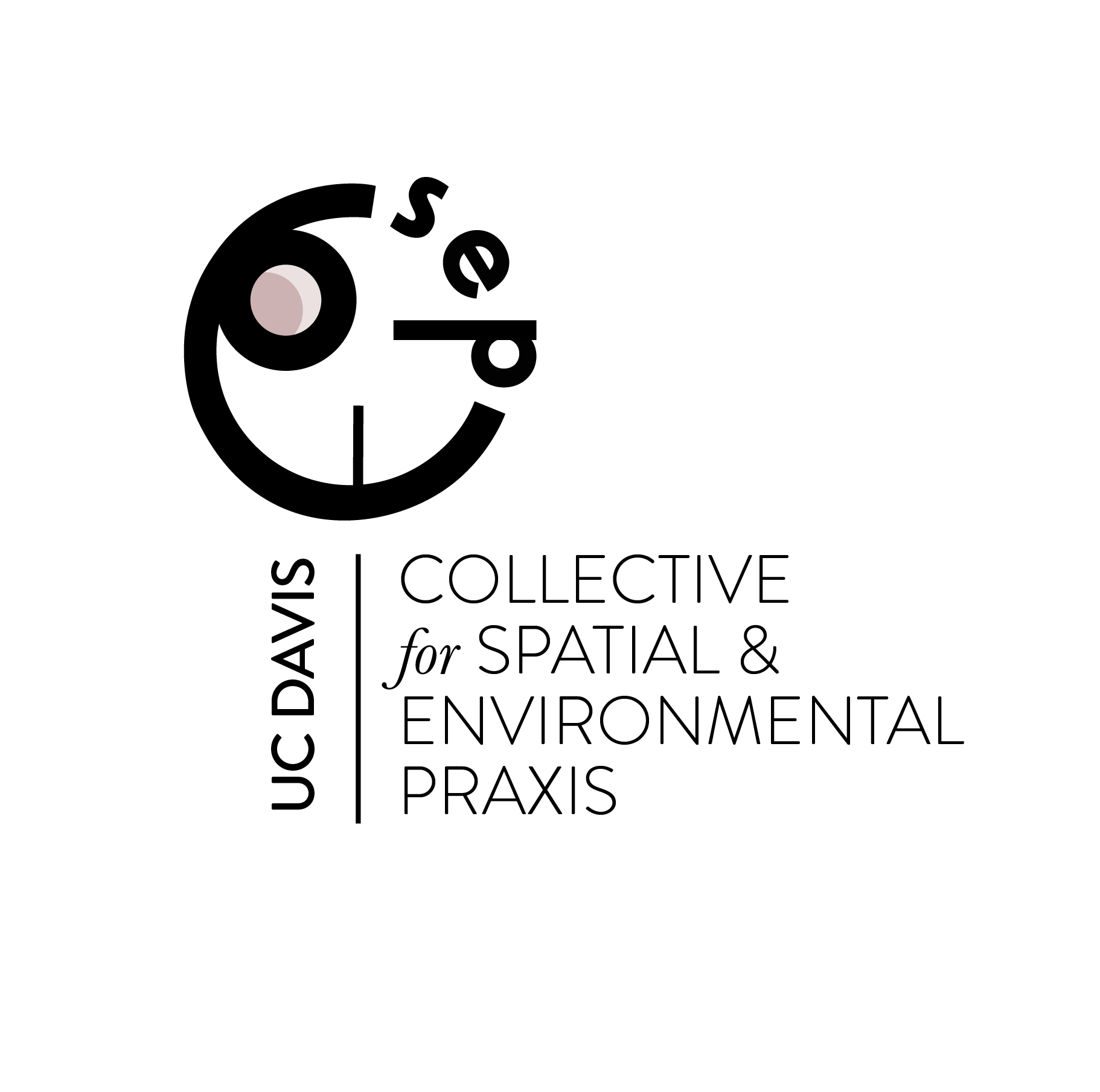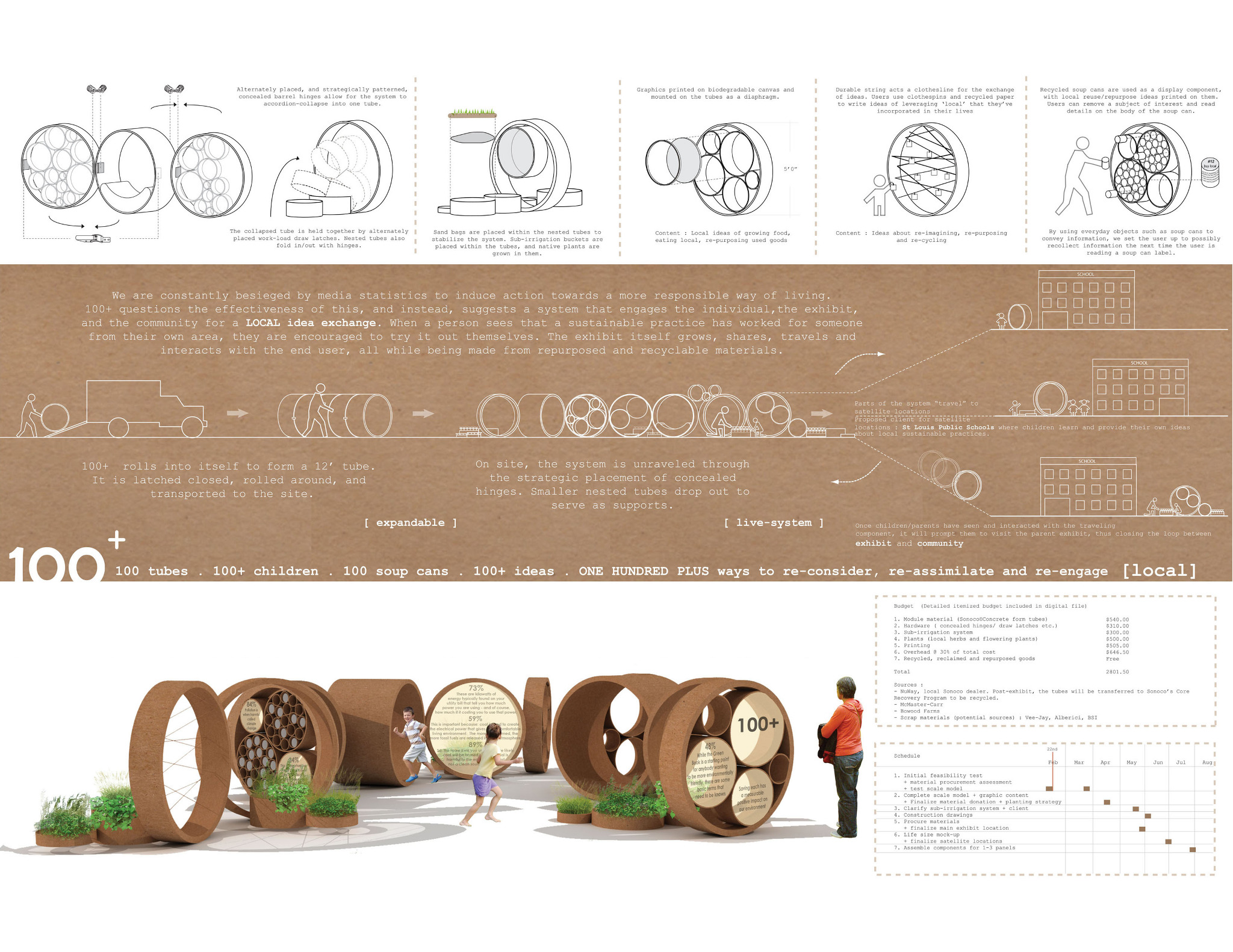CoSEP: Collective for Socio-Spatial and Environmental Praxis
Dec 2023 - current
Visit site: https://co-sep.net/
CoSEP is housed at the University of California, Davis, lead by Akshita Sivakumar, Ph.D.
CoSEP -- The Collective for Spatial and Environmental Praxis -- is a research group focused on creative and critical approaches to addressing the political, socio-spatial, and sociotechnical nature of designing and governing the built environment. CoSEP's projects lie at the intersection of design, technology, governance, and social justice. CoSEP is based out of the University of California, Davis, and is housed in the Department of Design.
The lab currently has two flagship research tracks:
1. Technoscience of Environmental Governance
2. Socio-Material Palette for a Just Transition
CoSEP is housed at the University of California, Davis, lead by Akshita Sivakumar, Ph.D.
CoSEP -- The Collective for Spatial and Environmental Praxis -- is a research group focused on creative and critical approaches to addressing the political, socio-spatial, and sociotechnical nature of designing and governing the built environment. CoSEP's projects lie at the intersection of design, technology, governance, and social justice. CoSEP is based out of the University of California, Davis, and is housed in the Department of Design.
The lab currently has two flagship research tracks:
1. Technoscience of Environmental Governance
2. Socio-Material Palette for a Just Transition
Agonistic Arrangements: Design for Dissensus in Environmental Governance
December 2024
Read here
Abstract: In response to a desire for justice-based outcomes in environmental governance, there is a rise in various forms of collective governance. The dominant models include participatory and consensus-based, deliberative governance, where aspects of the environment are managed and debated between state agencies, the market, and civil society. However, these models have limitations in negotiating power between various social groups to result in transformative organization. In response, building on the political theory of agonism, design and Human-Computer Interaction (HCI) have recently acknowledged the role of difference and dissensus in public sector participatory processes. The methods and effectiveness of how design can assist social movement actors in spurring and maintaining these differences to ensure just outcomes when participating in state-led governance practices remain to be studied. This article draws on over three years of fieldwork with environmental justice activists participating in California’s decarbonization program. I argue design can help with dissensus by creating space for, articulating the content of, and giving form to ways to draw out tensions that are often suspended in participatory and deliberative processes. I propose a conceptual and methodological framework called Agonistic Arrangements to draw out these tensions. These findings have implications for those involved in participatory governance in the public section across domains.
Abstract: In response to a desire for justice-based outcomes in environmental governance, there is a rise in various forms of collective governance. The dominant models include participatory and consensus-based, deliberative governance, where aspects of the environment are managed and debated between state agencies, the market, and civil society. However, these models have limitations in negotiating power between various social groups to result in transformative organization. In response, building on the political theory of agonism, design and Human-Computer Interaction (HCI) have recently acknowledged the role of difference and dissensus in public sector participatory processes. The methods and effectiveness of how design can assist social movement actors in spurring and maintaining these differences to ensure just outcomes when participating in state-led governance practices remain to be studied. This article draws on over three years of fieldwork with environmental justice activists participating in California’s decarbonization program. I argue design can help with dissensus by creating space for, articulating the content of, and giving form to ways to draw out tensions that are often suspended in participatory and deliberative processes. I propose a conceptual and methodological framework called Agonistic Arrangements to draw out these tensions. These findings have implications for those involved in participatory governance in the public section across domains.
Lagoons of Effluvia
July 2024
Read here
Environmental justice and climate justice activists routinely find themselves participating in state-led processes to determine energy futures and the built environment that follows. At stake is reproducing worlds of enclosure in the name of resilience, sustainability, innovation, carbon neutrality, and just transitions. This narrative performs a close reading of environmental justice activists’ participation in California’s Low Carbon Fuel Standard (LCFS) alongside the landscape of San Joaquin Valley’s lagoons of effluvia. I draw on extensive fieldwork with environmental justice activists, decolonial theories on worlding, and the theory of agonism to present interventions that interrupt state-led imaginaries to instead multiply worlds within worlds.
Environmental justice and climate justice activists routinely find themselves participating in state-led processes to determine energy futures and the built environment that follows. At stake is reproducing worlds of enclosure in the name of resilience, sustainability, innovation, carbon neutrality, and just transitions. This narrative performs a close reading of environmental justice activists’ participation in California’s Low Carbon Fuel Standard (LCFS) alongside the landscape of San Joaquin Valley’s lagoons of effluvia. I draw on extensive fieldwork with environmental justice activists, decolonial theories on worlding, and the theory of agonism to present interventions that interrupt state-led imaginaries to instead multiply worlds within worlds.
The Precarity of Solidarities via Technologies of Control: The Case of Chrome Plating in California
Abstract:
The labor and environmental social movements have routinely been drawn into governance relationships under the dominant regulatory regime of command and control in the United States since the 1960s (Kazis & Grossman 1983; Obach 1999). From scrubbers in smokestacks to computer models, these technologies have mediated regulatory compliance, decision-making, participation, representation, enforcement, and resistance to conditions of production. However, when state agencies take up the gambit of environmental justice (EJ), how, why, and to what effect do these technologies mediate the relationships between the two social movements? What happens when workers face the dissolution of their industries as a result? Through the case of the proposed ban of Hexavalent Chromium in California, this paper yokes together technology-driven mediations between labor and governance agencies and the interests of workers and environmental justice activists. Through participant observation, I find that state-driven technologies splinter solidaristic relationships between workers and the environmental justice movement. When these solidarities are weakened, an accelerated impetus for alternative control technologies promises to buttress worker precarity, obscuring empirically emergent and embodied best practices to live in toxic worlds while minimizing risks to workers and EJ communities. These findings problematize the longstanding jobs vs. environment stalemate, which has presented working-class jobs and environmental health as antagonistic goals. Contributing to how STS might inform governance structures that aim at a just transition, this paper suggests ways to think about the conditions of the precarity of the relationship between workers, environmental justice activists, and regulatory technologies.
Data Surrogates as Hosts: Politics of Environmental Governance
April ‘23
Abstract
Data-driven environmental governance within the standard regulatory regime routinely relies on unmeasurable, missing, or abjected data. Technocrats typically use data surrogates to alleviate this pervasive problem. By combining feminist technoscience and critical environmental justice approaches, this article argues that data surrogates are far more than fungible substitutes and rely on more than scientific rationality and transcendent objectivity. Through a case of intersecting environmental governance and justice work in the Portside Community in San Diego, this article exposits a broader conceptualization of data surrogates by developing a partial typology of operations they perform: calibrating, weighting, and validating. The politics and labors of these operations are crucial to analyze how data acquire material and discursive power in environmental governance. I propose an analytical shift from examining the work of data surrogates in terms of substituting to one of hosting. This shift reveals and better explains how data surrogates negotiate relationships between body, place, and property across state, market, and civil society actors. Moreover, it demonstrates how data surrogates interrupt the dominant regulatory regime by resisting fungibility through acts of social reproduction. Far from being subordinate to technocratic tools, the work of social reproduction makes governing with scientific and technical instruments both possible and contestable.
with Stephen Kim
2011
